Sometimes you just have to say it or write it.
This tale began in August 1997. Having experienced poor research supervision from a leading academic, I nearly gave up the PhD. I was persuaded to try again when the late Professor Richard Holmes asked me to present 4 subjects for an interview discussion. It was a remarkable ‘life-changing’ moment. Almost close on several hours of discussion, ‘we’ agreed to work in a partnership and ‘we’ made promises to each other - me to work and him to supervise. There are many kinds of student-supervisor relationships but the professionalism set by Richard was exceptional. We agreed I should go ahead with Bandenbekämpfung as the main topic. He thought my breadth of history could develop a more socio-cultural direction and should not be confined to military history. However, Richard cautioned, that researching security or counterinsurgency themes can stir criticism and certain cliques within the Anglo-American military history community can be hostile. Henceforth referred to as the blob.
I set forth in my research in the naive belief that academics wanted to read original research and findings. The work raised an intellectual problem that lies in the concept of counterinsurgency. This has become the leitmotiv of Anglo-American warfare and has influenced how history has been treated. In the historical context, what is an ‘insurgent’? Is an insurgent an outsider entering a country, or is an insurgent a combatant raised from within an indigenous population? In colonial history, insurgencies are prolific, but who was the insurgent - the imperial power or the people who took up arms? During the German invasion of Soviet Russia, the partisans were outlawed as bandit insurgents. After the war, western doctrine continued that terminology in the histories. By the time of the Vietnam War, insurgents were increasingly identified as the ‘enemy’ rather than as resistance to foreign rule and interference. Counterinsurgency became the word of power that was wielded constantly in the War on Terror - rendering the west the aggressor. Because of this, the west has lost considerable credibility and its fighting power except perhaps in nuclear weapons.

Another issue that became very clear very early on: accepting the reliability of veterans after 1995 was taking a huge research risk. The shifting memory problem, affecting interviewees’ accounts, is quite well known in oral-history research. However, back then there was an impression in military history circles that their anecdotes were sacred. Having met SS men in the 1980s, fifteen years later they had aged and so had their memories. Like veterans in my own family, they were no longer able to grasp certain events and their memories had become distorted. A German army veteran, over a six-year period, told several different accounts of the same partisan fight. One former Soviet partisan normally drifted away in talks, but delighted in painting NATO as an ‘army of pussies’. Similarly, the popular writers of books about the SS were equally unreliable. During a heated discussion at RUSI, a former British general insisted the SS that was responsible for the Bandenbekämpfung directive were a different bunch from the SS in his Waffen-SS books.
The first instance of confronting ‘the politics’ Richard mentioned, came during a conference at the Institute of Historical Research. When I introduced the term Bandenbekämpfung, then deconstructed its meaning, and then explained its introduction, there followed a heated discussion. Several persons from the blob had read Matthew Cooper (The Phantom War) and insisted on trying to lead me back to the path of righteousness by quoting sections of that book. Cooper was one of those books best used for keeping doors open. However, at a later conference in Essen long discussions with Denis Showalter, Wilhelm Deist, Stig Förster, Jürgen Zimmerer, Michael Geyer and Bernd Wegner, to name just a few, proved not only encouraging but offered assistance and guidance. An invitation to work at Aachen Technical University followed, which changed the entire direction of my work and life.
Bizarrely, once the thesis was finished and barely in the British library segments were being copied without citation. A work cited a source of mine that had been opened by special request to the archive. The date on the document and my request were sealed, the plagiarist had no idea how the system worked and assumed it was safe to take the source as his own without citation. University authorities were advised. Lawyers drafted a letter in 2006, but with the book about to be published, it was believed there was no immediate concern. Later it was decided to place my thesis in the public domain (academia.edu) to undermine any further attempts at plagiarism and isolate the originality of the source. Since that decision, more than 6,000 readers have benefited from the ‘open access’ to the thesis, which also accelerated the general acceptance of my research across university syllabuses. To this day, on average, 25 students/scholars per week download the thesis or engage with comments and questions. This has led to many new friendships and colleagues and has defined my faith in ‘open access’ research.
During a conference in the USA, a member of the US defence blob took umbrage on just about everything raised in my paper. Afterwards, a kindly American professor explained the rivalry between the two organisations. He said it was triggered when I was introduced as an historical advisor to the US Army in Europe, leading staff rides etc. Also, I had mentioned that members of the US Army had assisted my research, which was assumed to be direct financial assistance.
Regardless of the institutional pram rattling, there was a fundamental issue over my terminology - ‘Security Warfare’, Bandenbekämpfung and genocide - were too close for comfort to the War on Terror and NATO forces hunting terrorists. Parallels with the past generated angry responses, when it was explained that the department of defence had studied the Soviet Partisan in 1960. They had extracted the use of ‘body counts’ and ‘strategic hamlets’ from the German records. When I referred to Robert Armstrong, The Soviet Partisan, 1960, funded by DoD research, the ‘expert’ claimed there was no such book (you can read it under the link). Interestingly, decades later one of the world’s leading military research institutes published a report on counterinsurgency research in the USA over the last 40 years and completely missed the book.
Come 2006, when Hitler’s Bandit Hunters was published, it was at the time when the Wars on Terror were beginning to mire in failure. The blob was at its most lively arguing the war in Iraq was winnable and Bandenbekämpfung was an illusion, it was really only counterinsurgency. Everywhere there was COIN this and that, but not a lot of decent analysis. Some US generals donned civvies and went to see for themselves, their findings were not very favourable, especially about the Brits. Richard was informed and later he went to Iraq to see for himself. A long telephone on his return was deeply depressing about the situation.
Previous to publication, there had been several publishers that offered to accept the manuscript but depending on peer review. The manuscript was rubbished 5 times, one of those reviews rubbished me and not the book. The Association of the US Army book program intervened and acted as agents in publishing the book. The publisher received a foreword from Richard Holmes that largely silenced critics, which by then had become quite silly. Subsequent endorsements by Chris Bellamy, in his book Absolute War (2010), that had cited content pushed a more positive and groundbreaking view of Hitler’s Bandit Hunters.
(Amazon link under picture)
Subsequently, Alexandra Richie extensively cited Hitler’s Bandit Hunters in her book Hitler, Himmler and the Warsaw Uprising in 2013.
(Amazon link under picture)
Since 2006 the book has never been out of print, it remains the only interpretation of Bandenbekämpfung, and is on many university reading lists that teach Nazi Germany and the Holocaust. Hitler’s Bandit Hunters was released in October 2008 at the AUSA annual conference. Presentations were televised, it was my first appearance before cameras.
There were a few negative reviews, but Richard’s wise council was to never react to negative reviews. One critic argued how could one Nazi word have so much impact as to change military-security policy. To the many blinkered military historians who ignore culture, such a question probably seemed searching back then, but it was petty and revealed the underlying hostility among certain reviewers. Firstly, the Nazi regime thrived on the power of the word - Endlösung, Vernichtungskrieg, Arisierung - Bandenbekämpfung had been erased from the record. Secondly, there is too much stupidity thriving in academia to take some of them seriously.
Resentment from certain scholars in America and Germany hardened as the book was endorsed by US generals, in particular, one senior officer from the Vietnam War attracted certain reactions. Through AUSA's encouragement and support, my research moved towards the study of the Luftwaffe and its role in the Holocaust. This was a particularly difficult story for some Germans, including public scholars, since the Luftwaffe was regarded as the last vestige of German military honour. Once again the plagiarist turned up and tried to prevent the publication of my work. The senior scholars at the US Holocaust Memorial and Museum stepped in and accepted the article, but only under independent peer review. The editors approached the late Professor Denis Showalter and Professor James Corum, known for his scholarship about the Luftwaffe. Both approved the article, with glowing reviews, and it was published in the Holocaust and Genocide Studies journal in 2010. Gradually, the stage was set for moving toward completing my book Birds of Prey.
In 2009 there had been no means to analyse the actions of the Luftwaffe in a satisfactory format since the German war maps were too impractical for manipulation. In 2011 my partner, a GIS expert experimented on digitally modelling the maps. After a research visit to the natural science centre and Mammalian Institute in Białowieza National Park (Poland), she was supplied with older maps to help restore geospatial coordinates.
The park was destined to become, in Hermann Göring’s plan, the recreation of Germania on the new Greater German Reich’s eastern frontier. Göring used his Luftwaffe to implement the strategy and the surviving records were central to the book‘s research. My project partner created 20 GIS maps in colour and the research was passed to the USHMM. The director however later returned them, with a sincere apology, explaining a researcher had been found trying to copy the maps onto a disk. There was no panic since the logic and the data sets were not included in the transfer and it was simple to modify the maps. In later publications, we adopted black-white maps to simplify utilisation.
In April 2011 I received a sad telephone call from Steph Muir, Richard’s secretary. The news that Richard had died was shattering. I was devastated to lose the mentor who had become a friend. That morning I was due to lead a group of US Special Forces around Aachen explaining the 1944 battle and the problems confronting the civil affairs troops over the next year of allied occupation. I couldn’t speak. These men, many hardened NCOs experienced in combat, shared the grief and eased the pain. They were remarkable and a sharp reminder of the ordinary soldier’s deeper qualities compared to the superficiality of certain senior political officers who hog the limelight. The memorial service at Sandhurst Chapel for Richard was remarkable but private feelings made it difficult to engage, the loss was too deep. One memory from that time was how those in the blob who were critical of Richard’s success on TV soon became his staunchest endorsers after he’d passed.
In 2013, I was asked by a well-known North American TV Company to make a documentary on the forest. Most of my research was used to plan, set the content, and form the narrative. The producer promised full credits for my research but instead chose to narrate my content without credit. We visited the sites and we filmed but none of it was broadcast. Better still, the producer found some fall guys to spout nonsense before the cameras. He probably hoped that since there was no book in publication and my article was for academics, he could skip on the promises. Needless to add, I do not endorse the documentary and have since avoided several offers to carry out other TV work without certain guarantees in place first. This is also why I have fully supported World War 2 TV, the Adjutants Lounge and other podcasts.
The question of good faith, however, proved a huge problem with the original publisher. They had not paid any royalties since 2006, although the book had sold more than 15,000, was translated into Polish, and issued in a softcover edition. They were almost broken by the financial crash of 2008, but the book still sold and they did not pass on the royalties. They wanted to sell the book to another publishing house and expected my approval. I refused. They also tried to pay me off at barely a few cents on the dollar, I refused that as well. The transfer went ahead without my permission and that nonexistent relationship status from the first published was transferred to the new owner. Several people have tried to intercede but the publisher has refused to discuss the matter. Although a university publisher, they trade the book, without my permission and have not paid royalties. A new edition and a new publisher would probably be the best outcome.
In 2014 during the final stages of the first manuscript version of Birds of Prey, two things happened - a literary agent stepped in and I was diagnosed with cancer. While mutually exclusive events, they rebounded off each other. Being asked to edit a manuscript while under morphine was a disaster, while it read well to my drug-addled mind confined to a hospital bed, it was gobbledegook to even the most generous reader. The literary agent discovered the top 14 publishing houses declined Birds of Prey mostly because of certain reviewers. The reviews were the same, I knew who they were. The agent gave up. Battling cancer, serious health issues, the onset of disability, negative publishers, hostile reviews and isolation in rehabilitation clinics were not conducive to getting Birds of Prey done.
For 4 years the doctors thought there was something wrong, but were never quite certain as to what. When I was diagnosed, there were few concerns expressed as to what might be the outcome. Becoming seriously handicapped through surgery, losing organs, having to adapt to a ton of meds, and not being able to engage with the communities I had worked in led to isolation. The odd visits to seminars and conferences were but brief moments in long periods of surgery, rehabilitation and care. Between 2015-16 several friends and associated passed away including Manny Phelps, and Dr Joe White. In 2015 my mind had been shredded by all the surgeries and more than 30 procedures and was diagnosed with PTSD. Thus for 7 years, it was hard and the work was always messy from the many medical interruptions.
Then friends stepped in. With the passing of Richard, Professor Beatrice Heuser brought guidance. She recommended including the German hunt because it underpinned Luftwaffe culture. This raised a renewed confidence.
Thus in 2020, after a particularly heavy year of health issues, I went again to publishers. The old politics stirred again. The following is a typical example of the quality of peer reviews, that person must have felt incredibly empowered:
Peer review has become the stalking ground for the brutes (as in Brutus-like arrogance) of academia - who peer reviews the peer review when the reviewer of the first instance has an agenda? How much damage have these people done in holding back research? The peer review has become the last refuge of the scoundrel. What is the point of academia and its purpose in society: the original function was to weed people out like women, the working-class, minorities, loose cannons and particularly the disabled. Equality legislation has been like a sticking plaster for a broken leg. This was not why I became an academic.
Things change. Within the circle of Holocaust scholars, Ibidem Verlag is a German publisher based in Stuttgart, which has been building a reputation. They accepted my manuscript and publication was completed in September 2021. The book was endorsed by four leading scholars, has featured at the Frankfurt Book Fair and was broadcast on WW2TV on the day of publication. Finally, the long journey from 1997 was finished. As a freelance author, it’s now time to draw a veil over these issues and move on. But, anyone who has had a similar experience is welcome to blog their story here, anonymously if necessary, if it would help.
The new way of life. My new surgical corset enables a new kind of support mobility and encourages short bursts of activity. The meds are much reduced but I have to go through the trauma of quarterly tests. A bigger problem has been catching up with social media, and the advances in new tech.
Future. In terms of Bandenbekämpfung, there are plans for a third and final volume to complete the publication series, covering how German security warfare was incorporated into the western ways of warfare after 1945, especially in the decolonisation wars in Malaya, Kenya, Vietnam and Laos. One essay refutes all the tosh written about Auftragstaktik or Mission Command that now dominates Western thinking. Nazi Bandenbekämpfung methods have turned up in the Middle East military operations, especially during the Wars on Terror. The book also examines several cases of pre-Imperial Germany and the US frontier wars. The format is researched based on essays on security, military and war. I already have a sense of the blob’s reaction from a peer review for Birds of Prey, in which they defended the My Lai massacre, which was only mentioned in one paragraph. Imagine when they read an entire chapter!
Although the manuscript was almost finished, in February 2022 Putin’s war became a distraction. Experts in both war and genocide struggled to explain Putin‘s methods or why he had resorted to genocide. Interestingly, my opinions about ‘mechanised genocide’ introduced early into the war (10 March) were criticised, but now almost everyone has adopted the word ‘genocide’. It’s been a revelation watching the military history and War Studies experts struggle to comprehend the war and grapple with Putin’s politics of violence. Most have faded away as the war become too hard for weak analysis or failed to match the 1941-44 war on the Eastern front. Easy for the blob to explain the tech and kit, harder to unravel doctrine and direction.
Presently, I am engaged in writing a book about the War in Ukraine, and the genocide, for a leading British publisher, alongside Professor Chris Bellamy, Dustin Du Cane and Dr Nick Terry. I hope to finish by September. There will be a blog posted here once the manuscript is finalised.
The Fallout moment:
You may not be touched by reading about my past. However, I know some readers have suffered similar life-threatening health issues or problems with career-related publications. Students, researchers and scholars are pressured by the demands for publication to the point of suffering trauma. Ageism, sexism, jealousy and fear of becoming redundant have been pushed in the climate of reactionary conservatism, which is holding back new ideas and research. The academic establishment avoids criticism, will marginalise those with disabilities and will employs non-threatening scholars. There is probably more corruption in academia than business - only joking, not ‘probably’ but certainly! Nepotism and vitamin B are strong in academia, but oversight is low bar and management non-existent. History is dying from within and the guardians just don’t see it. We’re often intimidated into staying quiet and not encouraged to speak about our health or publication or career issues. This platform brings history and historians into closer orbit to engage and contextualise with the personalities.
On this platform, we discuss important, complex issues in a non-partisan way. The can cover the war in Ukraine in a podcast, in blog papers about the old and the new world orders, or in big laughs at the political clowns who’re trying to ruin our lives. We hope to have guests from across the globe to discuss stuff. This is going to be a roller coaster, enjoy the ride, my goal is to scrutinise the evidence and provoke discussion. This is a platform for cutting-edge history, some book reviews - fair or foul - political blogs, podcasts, and general mischief. An urban collective for the good, the bad and the ugly. If you want safe and cosy, maybe this is not the place for you.
Hit subscribe to get content to your inbox! We need and appreciate this! It’s free!
Cheers friends,
This is my recent WW2TV appearance:
If you want an author’s $2 EBook PDF copy of Bandenbekämpfung - Hitler’s Bandit Hunters and the SS In Nazi Occupied Europe, use the link.
Special signed EBooks with a dedication are available here.
The slideshow for the show on 18th August 2022:
If you would like a chat with me and a copy of the Bandenbekämpfung - Hitler's Bandit Hunters, click my face:
Phil Blood
P.S. while you’re here, check out one of my previous appearances on WW2TV.




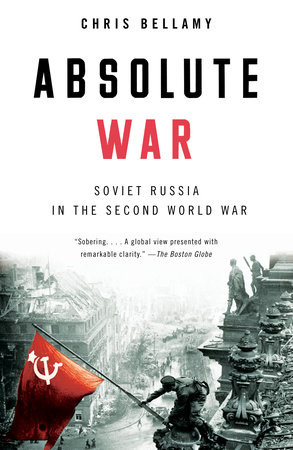

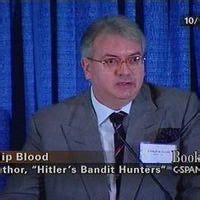
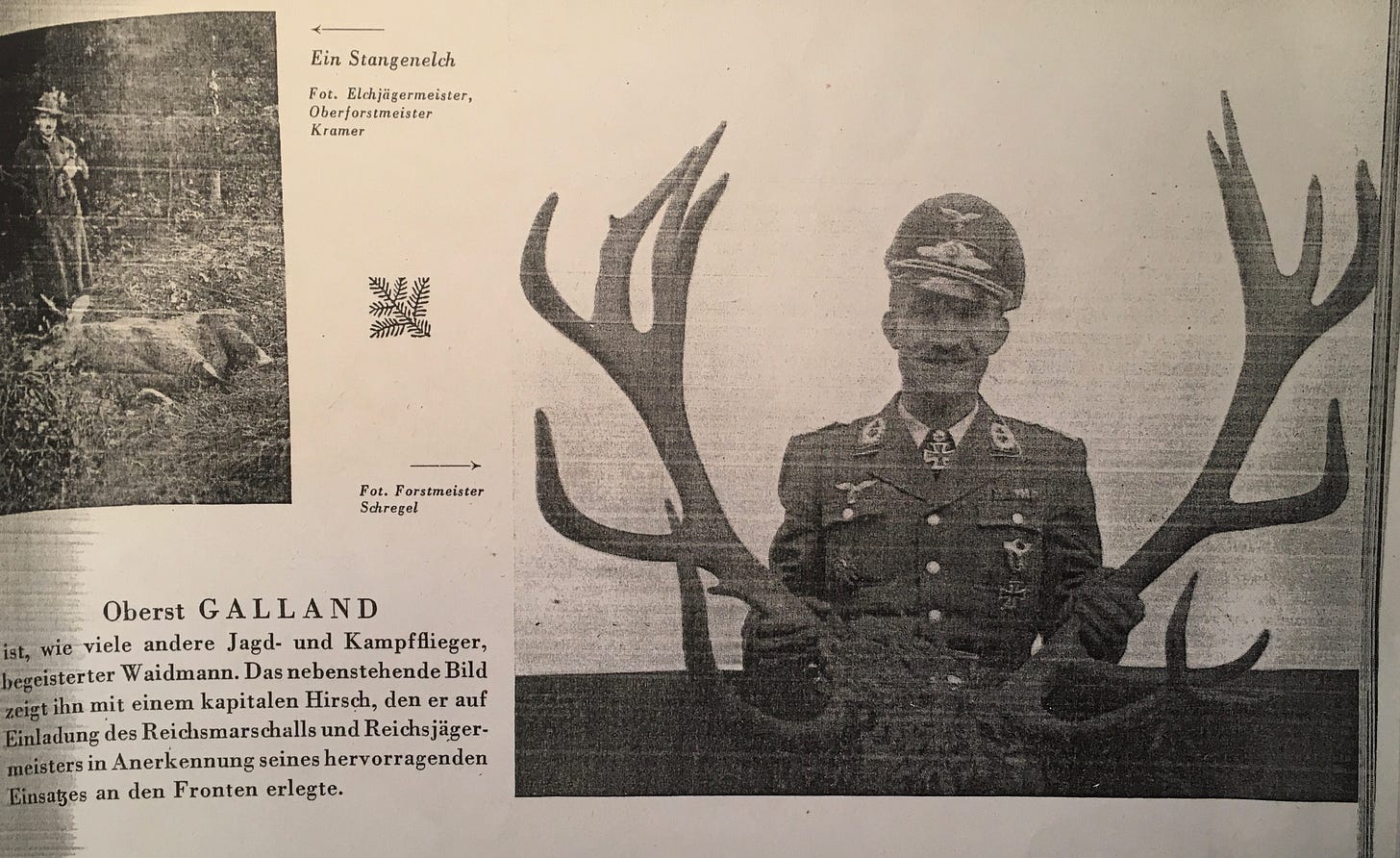
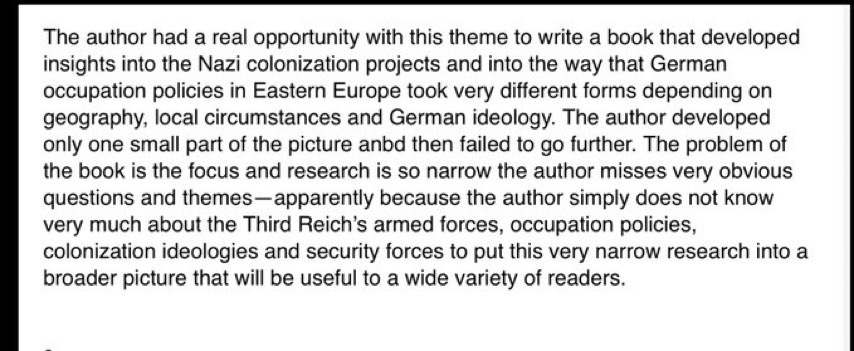



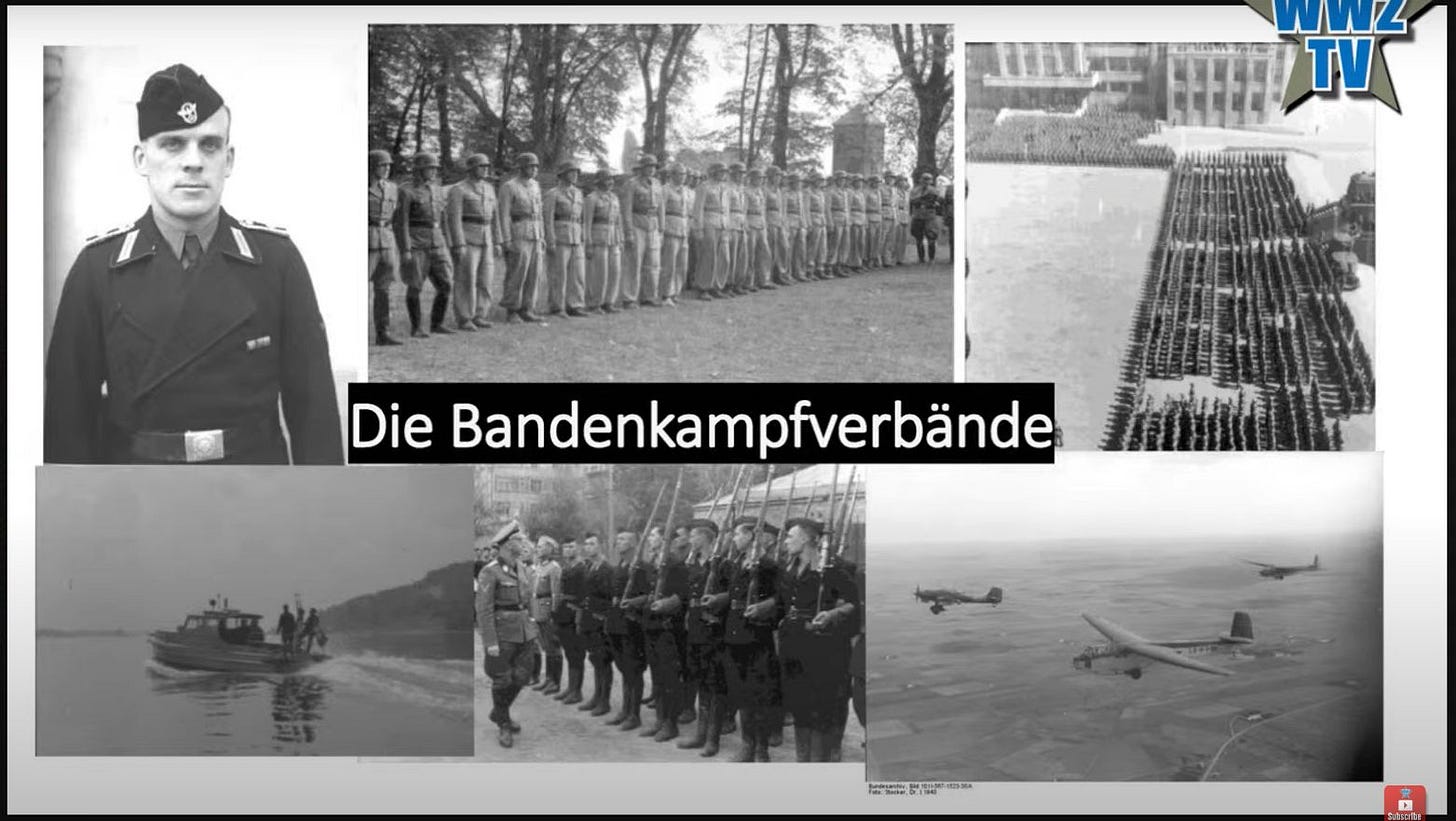

Thanks Dr. Blood.